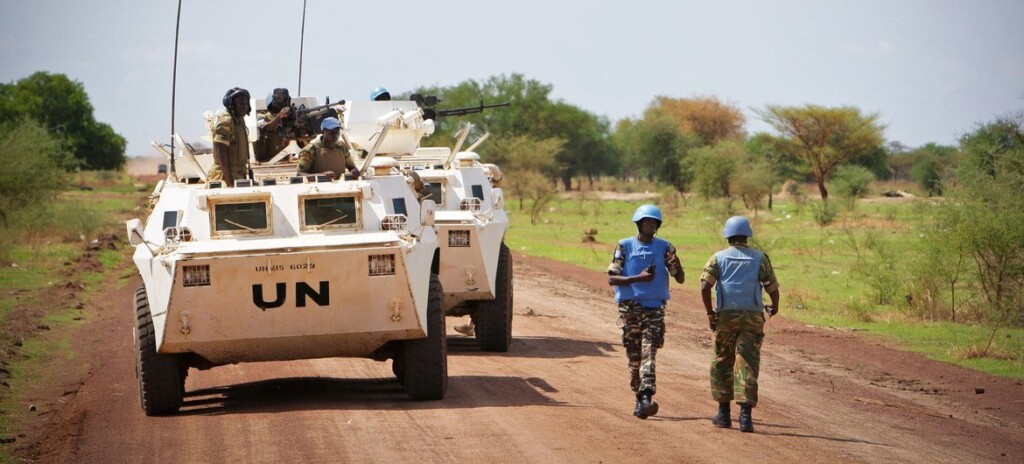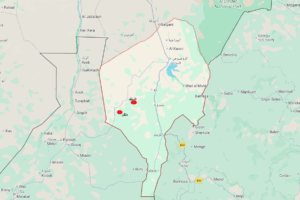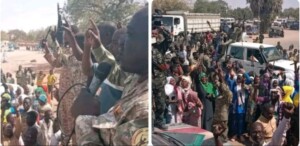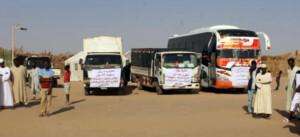UNISFA condemn Sudan-South Sudan alleged cattle-rustling which left 18 dead

United Nations Peacekeepers in the Abyei area (File photo: UN News)
ABYEI –
The UN Interim Security Force for Abyei (UNISFA) condemned an alleged cattle-rustling incident on January 27, which resulted in the death of 18 people, and at least nine injures. According to the UN, amongst the dead were five Nuer and two Dinka Ngok youths, as well as hundreds of allegedly rustled cattle, that have yet to be recovered.
In a press statement by the UN mission in Abyei on Wednesday, they stated that the area is a “weapons-free zone and should not have the presence of any force, whether traditional or armed elements of the two communities”.
UNISFA regretted the loss of life in the region and called for the “immediate disarmament of armed youths in the general area”. They added that the two communities should restrain from further violence, and de-escalate by joining hands with UNISFA, the UN Mission in South Sudan, and the Government of South Sudan “in finding a lasting solution to the crisis”.
The security mission stated that the renowned violence would only “exacerbate conflict in the area and cause untold suffering and humanitarian concerns”.
In response to the violence in January, UNISFA reportedly reinforced the presence of peacekeepers in the area and is now closely monitoring the situation.
Border security
Political activist Mohamed Abdallah told Radio Dabanga from Abyei that the clashes greatly affect commerce, due to the “lack of security for passing merchants coming from the south to Sudan, in addition to the shepherds already present in the region”.
Abdallah said that discussions between the region’s governor and Lt Gen Mohamed ‘Hemeti’ Dagalo in securing the border were underway. He added that the UN forces charged with securing Abyei’s reigons of El Faroug and Difra, were limited in their movement. Abdallah stated that the presence of norther Sudanese forces would help deter further instances of violence.
Mohamed Ahmed Musad, Director of the Samanda Organisation for Peace, Development and Human Rights, stated that it is the duty of UN forces to protect the people, “whether it is from the Ngok Dinka, the Misseriya, or other Sudanese tribes residing within region”.
Musad said the Dinka Ngok committed countless violations in the southern region, which resulted “in a number of Misseriya people losing their lives and livestock”.
He told Radio Dabanga that the southern part of the Abyei area is the area where the Dinka Ngok tribe lives, thus armed movement inside the southern area attributed to them, as “Misseriya herdsmen cannot move within the southern region”.
Protection
Abyei, an area at the Sudan-South Sudan border, is the traditional homeland of the Ngok Dinka, who have with strong ties with the South Sudanese Dinka tribe. Herders of the Misseriya, an ‘Arab’ tribe, traverse Abyei and other Sudan-South Sudan border areas with their cattle in search of water and pasture in the dry season and to trade goods. The region witnesses many cases of cattle rustling, hijacks, and other robberies.
Since the secession of South Sudan from Sudan in 2011, both countries claim the oil-rich region of Abyei. In the same year, the UN Security Council decided on the establishment of UNISFA, to monitor and verify the redeployment of armed forces from Abyei.
UNISFA also has a mandate to protect civilians under imminent threat of physical violence, to protect the area from incursions by unauthorized elements, and ensure security.
On May 1 2021, Radio Dabanga reported that the UN Under-Secretary-General for Peace Operations requested the Security Council to consider a six-month rollover of the UNISFA mandate, citing the volatile security situation.











 and then
and then